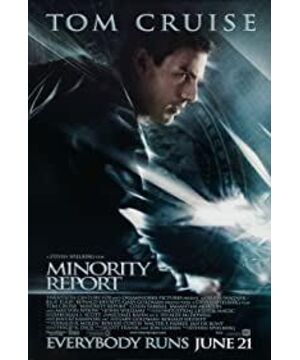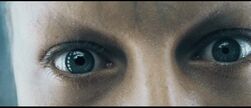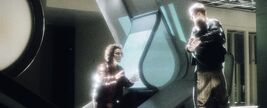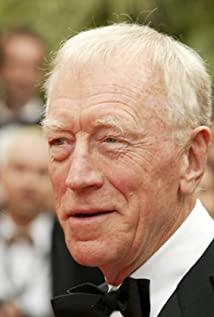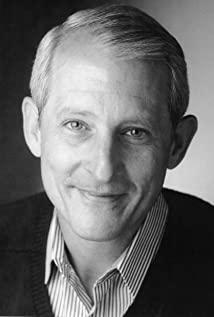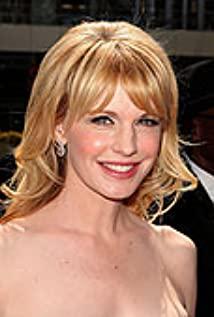The theme of the film is worth thinking about. Through the sci-fi technology of "foreseeing crime", the film wants to stimulate our thinking: the moral rationality of bringing criminals to justice before the crime occurs. The film speaks of Weituo: "The theory of crime prevention is flawed in jurisprudence." The following paragraph of logical discussion is quite exciting. Weituo believes that legal sanctions should be based on what he "did", not what he "want" to do. Anderton's answer is that the prophet does not predict what he "wants" to do, only what will happen. And made a vivid analogy: crimes happen as if the ball is about to fall. There is no doubt about it. The question is whether you want to bring the criminal to justice before the ball falls, or let the ball fall to the ground before being punished. This leads to a very interesting philosophical discussion about the judicial system. First, it is the question of whether the ball will land. The prophet’s prediction is statistically guaranteed. The prediction made the murder disappear, because everything can be stopped before it happened. This proves that the prediction is effective. And every time the scene predicted by the prophet is consistent with the future scene, (for example, everything before the murder of Anderton happened in sequence, the strange laugh of the old woman, the mistake of 6 and 9, the man in sunglasses) shows that the prophet is right The prediction of the future is also logical. Of course, you can still think that murder will not happen, but from a statistical point of view, the probability is almost zero. Then, the second question comes, is it reasonable to arrest the "prisoner" before the crime occurs? Although statistically speaking, the ball will almost certainly fall to the ground, there is a very small possibility that the criminal will change his mind. Should he still be caught before committing a crime? If you choose to arrest, then you may have wronged a good person (Anderton later lost faith in the prophetic system because he understood that people still have the opportunity to make a choice, and he may have wronged a good person), and in essence It is very similar to "I would rather kill a thousand by mistake than let one go." However, this situation is very common in real life. For example, in Chinese courts, there is a tendency to acquiesce that the defendant is a criminal. If you do not choose to arrest, in order not to be wronged, there are very few good people with very few probability, the price is to sacrifice the safety of other people. In many cases we know that a crime will happen but we don't stop it. The essence of this behavior is similar to the thinking of the American judicial system, "I would rather miss a thousand nets than kill one by mistake." If you ask me which one to choose, I will choose the former before watching the movie, and I will think more after watching the movie :). Before going to the movies, I lacked enough understanding and empathy for the good people who were wronged. After watching the movie, Anderton, as a good father who may be wronged, represents justice, and a good husband is enough to make us think.
The film still has a lot of side thinking, which is also very interesting. Is it reasonable to use people as a tool? (Anderton said, "It's better not to treat (the prophets) as human beings", but in fact they are also people with their own thoughts and emotions) Has the development of society made everyone live better? (In the film, high-tech cars go straight up and down, automated factories use laser processing extensively, and iris scanning provides adaptive information. However, people in slums still live in a dirty environment and do not enjoy the conveniences provided by high-tech such as adaptive information. ) Can foreseeing crimes be exploited like sacrificial oracles? (The Attorney General, who is not mentioned in depth in the film, may be able to imagine. The film uses the prophet inventor to mention that "the Attorney General wants to take the system as his own." When the inspector general controls the system, we can Use it to fight against political enemies. After all, he controls the prophet, he is the pope, and whoever is guilty is guilty.) The media deceived the public to cover up the facts. (The public believes that the prophet is a test-tube baby, but in fact the prophet is an individual after the age of 12, and has a genetic mutation. The media instilled in the public "the prophet owns a bedroom TV and a gym, it is good to be a prophet", but in fact the prophet depends on every day The photon guide fluid provides nutrition, and Isatonin guarantees that he can’t go deep into the water and has nightmares day and night.) Let’s
talk about the narrative. The narrative of the film is very exciting, the plot is compact, and the climax is repeated, as if reading an exceptionally wonderful suspense novel. The "prophet" knows the future setting in advance, which itself provides convenience for the circular narrative technique. First explain the ending, then people look at the process with questions, and finally the ending is unexpected. The multi-line narrative is also very good. Anderton’s divorced child was killed, Weituo was killed due to his duty, and the director was determined to sacrifice others for his own prediction system. These lines are intertwined in a very reasonable and unobtrusive manner. For example, Anderton was killed because he discovered that the chief had murdered, while Anderton had always misunderstood that Weito was due to his due diligence and discovered that he was taking drugs, and Anderton was taking drugs because his son was murdered. There are many examples of this, and I always exclaimed the film’s narrative ability.
In short, this is an extremely good science fiction movie, which is seriously underestimated from the point of view of the ratings. There are always some people who like to find logical errors in science fiction movies, so by the way, I also talk about my thinking about science fiction movies to criticize these people.
First of all, science fiction movies are art rather than instructions. In the division of movies, science fiction movies belong to formalism movies. Once again, sci-fi movies are formalist movies rather than realist movies (realistic movies). As a formalist film, sci-fi movies like to use realistic techniques. For example, "The Ninth District" uses documentary techniques. This can give science fiction a more realistic and shocking sense. If you can't realize that science fiction is a formality, but an image of things, it can be said that you will never understand science fiction movies. If you are so ignorant that watching a science fiction movie only looks for the logical error of the sci-fi setting, but does not pay attention to the symbolic meaning behind the sci-fi setting, you will lose everything and fail to understand. For example, the giant baby in the universe that appeared at the end of "2001: A Space Odyssey" is bigger than the earth. This is a kind of imagery and a symbol. Perhaps some people in science and engineering have begun to criticize what this bad movie is. How can babies be bigger than the earth? Can babies in outer space survive? Why is there a 13-minute psychedelic shot? Is the director taking drugs? So as to draw the conclusion of bad film. Some people also retorted that this is just a few flaws, and there are still many reasonable scientific settings in "2001". However, judging a sci-fi movie just by looking at whether the setting is reasonable will never grasp the point. Some people say that the Snow Country train is rotten, and humans have to live in several carriages, or something like perpetual motion machines that violates the laws of thermodynamics. It can be said here that the carriage is just a symbol, a symbol of class, and the perpetual motion machine symbolizes order and symbolizes worship. This is the reason for class oppression.
So some people will ask what is the difference between science fiction movies and magical fantasy? The common point of science fiction and magical fantasy is that they are both formalistic things, but the difference is that science fiction movies like to use realistic techniques, which gives people a sense of reality. Truth is only a means, not an end. For example, the "Prophet" in the "Minority Report" has the ability to predict crime. You can use scientific predictions to express this kind of setting to give people a sense of reality. The movie uses Freud's deja vu's point of view, genetic mutations, and the ability to predict the future formed by technological development. This setting of fantasy films can be stated as a myth. This is the difference between science fiction and magic. It is a difference in technique.
Of course, I do not deny that it is very interesting to find faults in science fiction movies, find loopholes in science fiction, and use your own scientific knowledge. For example, we analyze the interesting aspects of the spaceship setting in "2001", the black hole in "Interstellar Crossing", and the performance of the setting of five-dimensional space. But if you only focus on whether the setting is reasonable, and you are proud of finding flaws, you are ignorant and lacking imagination if you do not focus on deeper thinking. After all, sci-fi movies are not instructions. Of course, these people disagree with what I said, and if they still follow the spirit of looking for faults when watching science fiction movies, they are the ones who lose valuable thinking.
Finally, the description of the future in "Three Body" uses a lot of settings from the "Minority Report". For example, the pictures on the packaging box move, and iris recognition makes the information personalized for each person. Information windows are everywhere.
View more about Minority Report reviews


